Front and Center: Robyn MacSorley
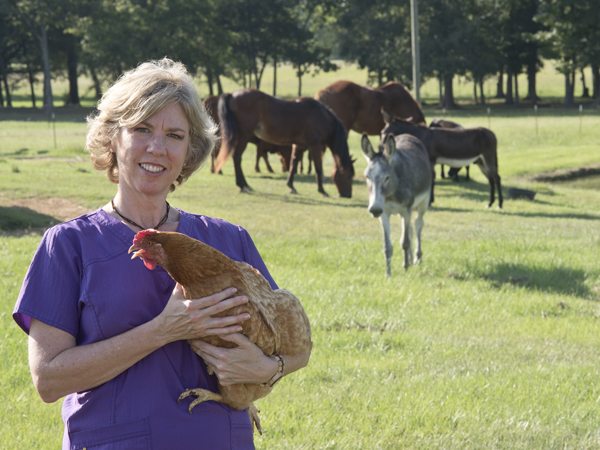
About 13 miles north of Monticello, Mississippi, on highway 27, sits a little town called Oma. The community wasn't included in the recent census, so it's not easy to confirm how many people live there. What the U.S. census has determined is that the three communities within a 10-mile radius of Oma contain no more than 718 souls.
Yet in 1985, Oma was home to royalty - Angus royalty - Mississippi Angus Queen Robyn Preuss, known today by her students as Dr. Robyn MacSorley, assistant professor at the University of Mississippi School of Nursing and director of the clinical skills and simulation center.
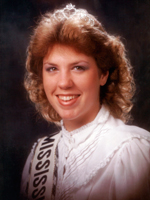
MacSorley's father became an extension agent in Lawrence County after graduating from Mississippi State with a degree in animal husbandry in 1960. He introduced the family to cattle farming.
“He always wanted to have the cattle and for us to start showing them,” said MacSorley. “He actually got his brothers involved in cattle. They had Monogram Farms in Terry, and our farm was called River Road Ranch.”
The Preuss family discovered the meaning behind the farm's name in 1979. “We found out with the Flood of '79 that it definitely was a river road.”
The landscape of flooded Mississippi provided bizarre sights and strange alliances. “There was a little lady who lived in a trailer on the end of our place. On her front porch, I can remember seeing a dog, a chicken and an egg in between them. I can remember possums on fence posts, you know, animals trying to move up high.”
MacSorley was tasked with helping move the cattle to higher ground, hiking her dress above the water and wading through before catching a neighbor's boat to stay on higher ground in New Hebron, waiting until the waters subsided to go back home to clean up the mess the muddy waters left behind.
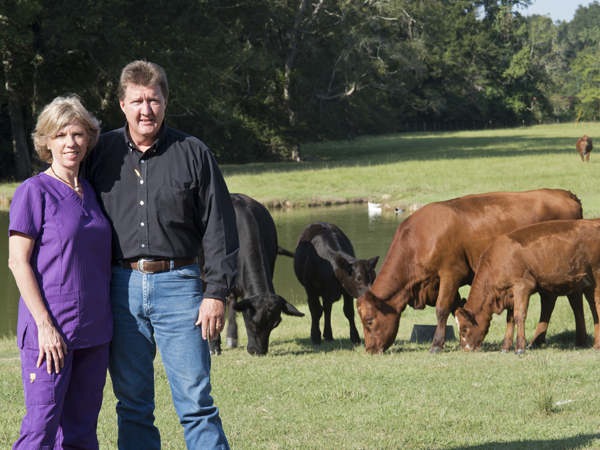
“I wanted to give what I had learned growing up, that my dad had taught us, to my children. I wanted them to have what I had,” said MacSorley.
Billy, who grew up in Jackson and is a graduate of Forest Hill High School, traded his loafers and neatly-pressed preppy shirts for jeans, cowboy boots and a mare named Dixie. MacSorley rode a horse named Country Boy; daughter Rainey rode a horse named Mercy, and son Wesley rode a spunky, bunny-hopping mare named Candy.
“He was about the only person who could ride her, even at age 13,” said MacSorley. Both of the MacSorley children were active in the Lincoln County Youth rodeo, with Rainey barrel and pole racing and Wesley bareback bronc riding.
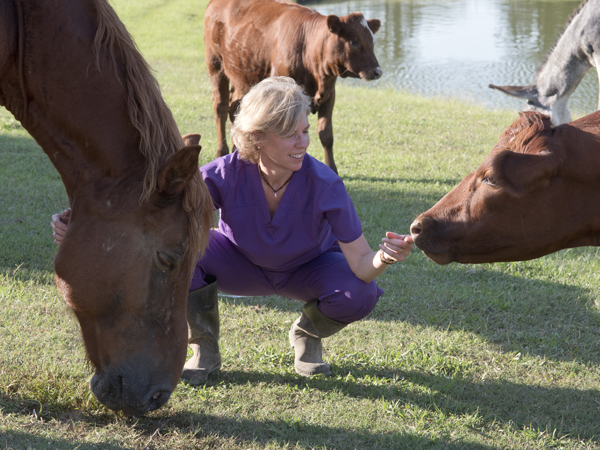
“We purchased a bull and two heifers. We made a chicken coop and got some chickens. We have ducks, and we recently were given a couple of donkeys, a jenny and a jack. We call them Jack and Jill.”
A morning on the farm has MacSorley releasing the chickens to roam free while she's at work. The chickens and ducks forage amongst the horses, a Belgian named Duke and Candy the quarter horse. Donkeys, being naturally protective, keep the dogs, an Australian shepherd and a blue heeler, in check.
“Our little blue heeler will run behind our horses and grab their tail and swing off of them. How they have not made contact with her when they kick at her, I don't know. The donkeys are not allowing that.”
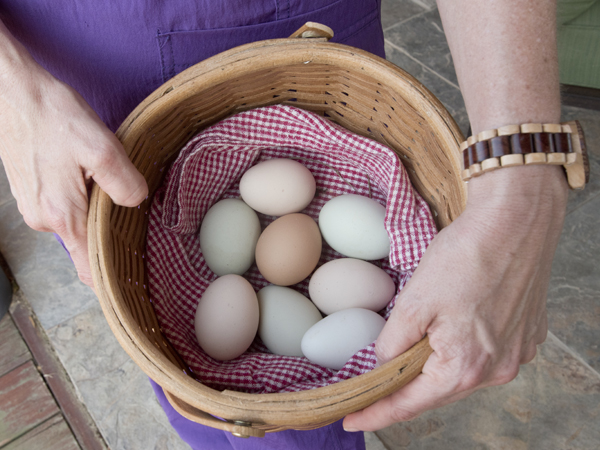
The chickens also provide fertilizer for the raised beds where MacSorley grows tomatoes, okra, sunflowers, cantaloupe, peppers, lettuce and cucumbers. The plan was to live off the land a little more with vegetables and grass-fed beef, now that both of the heifers have given birth. But plans get complicated once the food is named.
“The plan with the calves was to sell one and butcher one, but we've gotten a little attached to Bully the little red calf. He's cute, so that's going to be difficult.”
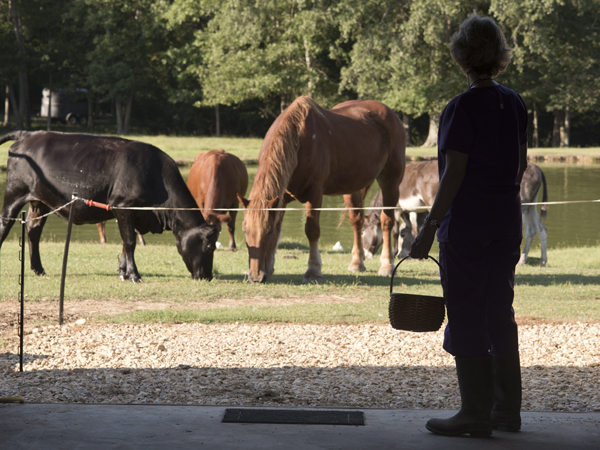
“I've missed this sound. I've missed this smell. I never would have thought I would, but I did. Either you love it, or you don't. And I love it. I don't mind getting muddy. I don't mind getting dirty. I go home, and I don't even change clothes. I throw on my rubber boots and go out there and feed 'em. If I get stuff on me, oh well, so be it. It's part of the farm. I love it!”


